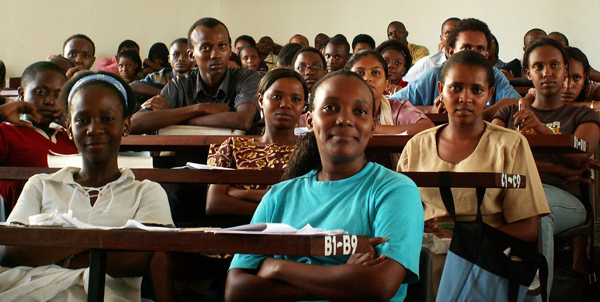The awakening of the giant

In the last couple of years Sub-Saharan Africa has become an important actor on the economic global market despite public opinion. On one hand, some argue that the national governments do not receive as much help as they need from international institutions to promote development. On the other hand, others state that national governments are so corrupted that there is not a viable solution that applies to the economic development. This bipolarization of opinion concerning the development of the Sub-Saharan region is often accompanied by thousands of statistics from research that dismisses or reinforces one argument or another. Today, the topic could not be more of a trend after the IMF revealed their Regional Economic Outlook and stated that the Sub-region is projected to grow by 4,5 % in 2015. The IMF places the region as one of the fastest growing in the world, due to its human and natural resources. However, economic development is not the only factor promoting development in the region. Other aspects, such as social, political or educational influence the growth of the region and will be discussed as equivalently important factors throughout this article.
Education is a key element contributing to development and economic growth and should not be disregarded. It is an essential part to help economies to grow and develop Sub Saharan countries further. Easterly and Levine found that ethnic fragmentation is an additional variable, being a major impediment for the slow growth of African economies. This is due to group tensions, which are also related to social unrest. Moreover, they found, that education is positively related to economic growth and therefore is prove that if education as well as ethnic fragmentation can be improved, Sub-Saharan African economy will grow in the future.
Linked to the social development is the empowerment of the Sub Saharan women through their emancipation and participation in the labour force. The United Nations for Women state that, if more women work, countries develop faster, child mortality decreases for just one more additional year of education for them, women being main savers in the households adds up on conscious spending, and so on. These are just mere examples on how making women take part in the social and economic structures is a highly relevant contribution to development.
Political stability is another aspect that is important to achieve development in the Sub-Saharan countries. Sub- Saharan Africa is widely considered among the world’s most corrupt places. If governments work to create institutions that monitor the political structure in their countries, the region would become more stable and could boost development in all possible ways, making citizens also have hope on their public institutions and figures, putting the money to the correct causes. When the political structure of African countries becomes more transparent and less corrupt, the impact will be directly reflected in the economy as well.
The job of an international institutions as the IMF does not have the only job of convincing the world that economy is all that matters and that it is the issue to be discussed at all times. By publishing the regional report, the IMF is also giving hope on Africa, placing the spotlight into a region that deserves much of the attention but that some western countries often do not look at. All of the above factors contribute to a better system as well as the population’s well being. With the combination of all of them working together, Sub-Saharan Africa will become the economic giant that it should be, all by itself.



